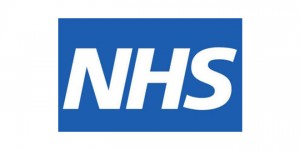Brexit – Industry Response
 As the dust settles following last Thursday’s decision to leave the European union, industry professionals have responded, and given their opinion on the likely effects to follow:
As the dust settles following last Thursday’s decision to leave the European union, industry professionals have responded, and given their opinion on the likely effects to follow:
Frost & Sullivan Senior Research Analyst -Transformational Health, Tanvir Jaikishen:
As a consequence of the United Kingdom’s vote to Leave the European Union, Frost & Sullivan sees tremendous challenges to the National Health Service’s (NHS) goal to combine savings while maintaining continuous or improved healthcare quality outcomes. There is an increasing gap in manpower as the major threat to the UK’s NHS. Shortages in primary and long term care will force hospitals to continue to bear a disproportionate burden of care provision. The Leave decision will have far reaching implications on recruitment of skilled doctors and nurses from the EU. This will invariably lead to longer waiting times and delayed care provision.
 The NHS has an ambitious goal to deliver on GBP 22 billion in efficiency savings by 2020. These efficiency savings are contingent on the successful transition of care away from hospitals and towards primary care and long term care providers. With the NHS currently spending the overwhelming majority of around 78 percent of its budget on hospital based care and only 15 percent on primary care and 5 percent on continuing health care and social care, efficiency savings can only be realized by a gradual shift in spending away from hospitals and towards primary and social care provision. This transition will be hampered by continued manpower and funding shortages. Combined with rising health care costs, this will most certainly result in lower quality of care provision.
The NHS has an ambitious goal to deliver on GBP 22 billion in efficiency savings by 2020. These efficiency savings are contingent on the successful transition of care away from hospitals and towards primary care and long term care providers. With the NHS currently spending the overwhelming majority of around 78 percent of its budget on hospital based care and only 15 percent on primary care and 5 percent on continuing health care and social care, efficiency savings can only be realized by a gradual shift in spending away from hospitals and towards primary and social care provision. This transition will be hampered by continued manpower and funding shortages. Combined with rising health care costs, this will most certainly result in lower quality of care provision.
However, in the long run, both the EU’s as well as the UK’s healthcare systems could benefit from a higher willingness to adapt new technologies, business models and innovations. An example of a new business model which could see increased acceptance, is the concept of risk based partnerships between hospitals and suppliers, as care providers strive to make financial savings from using innovative services/solutions. Just as the recession in the U.S. in 2008 triggered an increase in investment in technologies that supported care coordination and accountable care, this disruption in Europe, and its temporary financial impact, can be expected to accelerate the adoption of outcomes based technologies in healthcare in Europe as well. Moreover, the approval processes for new drugs or medical devices as well as the cooperation between the public and the private sector (PPP, private public partnership) can be expected to increase in Europe, as the private sector will be welcomed to take on bigger service provision role.
With the planned care transition thrown in jeopardy, the NHS will need to introspect on how to plug manpower gaps, and delivery efficiency savings with reduced budgets. The approach to care provision thus far has been reactionary. With the given situation, this is expected to change. In order to create viable integrated care solutions, there will be a greater need for adoption of information technology in order to more efficiently manage care provision with fewer resources. This presents a silver lining for companies with products and services that aid in improving institutional or departmental workflow efficiencies, managing increasing patient volumes and eliminating redundancies. Medical imaging and devices companies have already begun to enter in to long term risk sharing strategic contracts with hospitals to help reduce costs and increase revenues while ensuring that hospitals continue to offer the best in care. Those stakeholders sitting on the fence will contemplate taking the plunge just as the Financial Services industry took big strides post the 2008 financial crisis. This sentinel event can be seen as the spark that can ignite a much needed healthcare services revolution.
Health+care Show:
Britain has made its choice to leave the EU. Nobody yet knows what the full impact will be – but few can doubt that there will be major implications, not least to the NHS. The Health+Care Show next week is the sector’s first opportunity to respond to BREXIT and to consider its implications for the NHS, local authorities and the populations they serve.
As the UK wakes up to the reality of BREXIT and the exit of David Cameron as Prime Minister, what will this period of instability mean for the NHS and social care? Already on a frantic timeline to deliver the Five Year Forward View by 2020/21, we are now faced with the certainty of a new Prime Minister, a new Government and two years of difficult negotiations over Britain’s exit from the EU. Will this put the crisis in the NHS and social care out of the spotlight just at a time when it needs to be centre stage? Or will the departure from the EU mean more resources and less pressure on our health and care service in the long run?
The Health+Care Show is the first opportunity for the health and care sector to come together to discuss a new era for health and social care outside the EU. This is your chance to hear the views of health and social care leaders, such as NHS England’s Ian Dodge, leading hospital chief executives, Sir Andrew Cash and Claire Murdoch and Adass’s Margaret Willcox. Also, NHS policy and finance analysts, such as Paul Corrigan, Tony Blair’s former health advisor, the Health Foundations’ Adam Roberts, and Roy Lilley and leading politicians, including Rt. Hon. Alistair Burt, minister of state for community and social care, shadow health secretary Heidi Alexander and a string of past health secretaries and ministers, including the Rt. Hon. Andrew Lansley, the Rt. Hon. Norman Lamb, the Rt. Hon. Patricia Hewitt and Rt. Hon. Stephen Dorrell.
The National Care Association:
‘Having had the opportunity to democratically decide on the future of our country, we must now ensure that all possible steps are taken to deliver the manifesto pledges by politicians on the winning side. The challenges faced by the social care sector will be polarised by the inability to ensure that they can recruit a European workforce and so it is crucial that we work together to create solutions which are positive and sustainable.’
National Care Association’s Executive Chairman, Nadra Ahmed OBE added, ‘The challenges of recruiting and retaining social care staff has created substantial issues for providers. It is, therefore, crucial that, as we plan our exit of the EU member states over the coming weeks and months, we remain focused on the sector’s challenges. The National Care Association will continue to ensure that we engage with Government on the many fronts which will impact on the small- and medium-sized care providers. It is essential for our country to demonstrate that, as a society we recognise the value of essential care and support services for the frailest and most vulnerable members of our community.’
Mike Padgham, Chair of the United Kingdom Homecare Association said:
“No matter how people voted in the referendum, it is crucial that we work together to shape the future of a nation which moves forward in a positive and constructive way.
“For those of us engaged in social care, the wellbeing of older and disabled people will be paramount, along with an economy which enables independent and voluntary sector businesses to flourish.
“Following yesterday’s vote, the legal position in the UK has not immediately changed. Laws which stem from the European Union, including human rights law and significant parts of employment legislation, will remain in force, unless the UK Government makes alternative provision.
“The ability of the social care sector to recruit and retain an effective workforce is of particular concern. The contribution of every care worker matters and the ability for employers to recruit non-British EU citizens as part of the social care workforce, will be particularly important for many homecare providers. It is an issue over which UKHCA will be fully engaged.
“It is essential that properly resourced social care and health services are not side-lined in Government’s plans for transition from the EU in the coming two years. UKHCA will continue to make the strongest case people who use and provide homecare services.”






